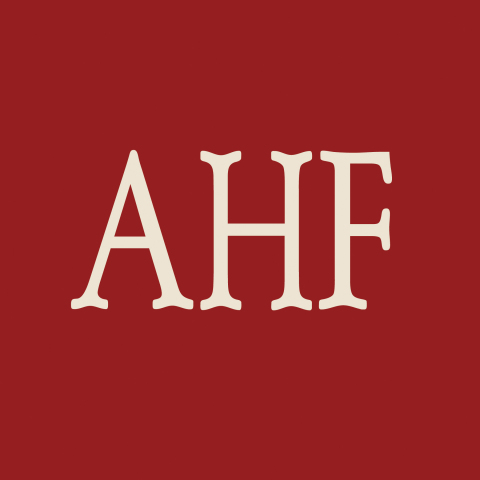AHF: Six Reasons Why WHO Chief Should Go
AHF: Six Reasons Why WHO Chief Should Go
LOS ANGELES--(BUSINESS WIRE)--As the process to appoint a new Director-General of the World Health Organization (WHO) gets underway, United Nations Member States must consider a change in leadership at the WHO, according to AIDS Healthcare Foundation (AHF), the world’s largest provider of HIV/AIDS care globally. The appointment of the next WHO Director-General is slated for May 2022 after the current WHO chief, Tedros Adhanom Ghebreyesus, completes his first term by the end of 2021.
“Extraordinary circumstances call for extraordinary leadership, which is why we need a new candidate to head up the WHO. When looking at some of the most glaring missteps in the global response to COVID-19, it’s clear that following the same path will not end the pandemic anytime soon,” said AHF President Michael Weinstein. “When billions of lives are on the line, a WHO leader must be unencumbered by allegiances to anyone but his duties to openly speak and do whatever is necessary to protect global public health. Sadly, that hasn’t been the case in the ongoing pandemic.”
The COVID-19 crisis has demonstrated that when the pandemic called for bold leadership and innovative thinking, the WHO repeatedly became mired in international politics and bureaucracy, instead of quickly implementing critical public health measures. These repeated failures leave the world vulnerable to new and ongoing health emergencies unless an independent and proactive leader is put in charge of the WHO.
“The entire world has felt the ramifications of the slow response to COVID-19, but the long-term economic and social impact on Africa will be particularly acute given the current vaccine shortages,” said AHF Africa Bureau Chief Dr. Penninah Iutung. “If we are to truly protect the health of the entire world, the WHO must be led by someone beyond reproach who is willing to speak up no matter the circumstances. The past mistakes with COVID-19 and other infectious disease outbreaks over the past half-decade make it clear WHO must change its direction.”
The following six reasons underscore why WHO needs a new Director-General:
1. WHO delayed declaring COVID-19 a pandemic.
Despite the spread of COVID-19 to multiple countries, the WHO waited until March 11, 2020, to declare a pandemic, 40 days after declaring it a Public Health Emergency of International Concern (PHEIC).
2. Lack of transparency regarding the origin of COVID-19.
WHO Director-General Tedros Adhanom Ghebreyesus repeatedly praised China for acting quickly and transparently, even though it denied scientists access to vital data on the origins of the outbreak.
3. Inability to mobilize and coordinate resources to help low- and middle-income countries.
COVAX expects to provide enough vaccines to protect 20% of people in 92 lower-income nations, but WHO says that to stop COVID-19, at least 70% of people need to be vaccinated.
4. Delays in vaccine approvals.
It took the WHO four months, until April 30, to authorize the Moderna COVID-19 vaccine for emergency use after it was already approved for emergency use by the US Food and Drug Administration (FDA).
5. Lack of authoritative guidance in preventing and responding to public health crises.
Without consistent guidance from the WHO on case reporting, travel restrictions, protective equipment, and the use of various drugs like Ibuprofen or dexamethasone, nearly every country acted on its own, creating confusion.
6. Failure to implement previous proposals to radically reform WHO.
After the 2013-2016 Ebola outbreak and other recent health emergencies, numerous proposals were drafted calling for reforms of the WHO to be better prepared to fight pandemics. Few substantive reforms were ever implemented, leaving the world vulnerable to COVID-19.
At the 75th World Health Assembly in May 2022, Member States will have an opportunity to decide who will lead the WHO for the next five years. Their choice must be transparent and informed by the past performance of WHO leadership and whether it has delivered on its mission of protecting global health. If it has not, as the evidence suggests, then Member States have an obligation to their citizens to ensure that a more capable leader is appointed, as the world is still trying to come to grips with COVID-19. Member States can submit the names of possible candidates to the WHO Executive Board until mid-September 2021.
AIDS Healthcare Foundation (AHF), the largest global AIDS organization, currently provides medical care and/or services to over 1.5 million clients in 45 countries worldwide in the US, Africa, Latin America/Caribbean, the Asia/Pacific Region and Europe. To learn more about AHF, please visit our website: www.aidshealth.org, find us on Facebook: www.facebook.com/aidshealth and follow us on Twitter: @aidshealthcare and Instagram: @aidshealthcare
Contacts
US MEDIA CONTACT:
Ged Kenslea, Senior Director, Communications, AHF
+1.323.308.1833 work +1.323.791.5526 mobile
gedk@aidshealth.org
Denys Nazarov, Director of Global Policy &
Communications, AHF
+1 323.308.1829
denys.nazarov@ahf.org
